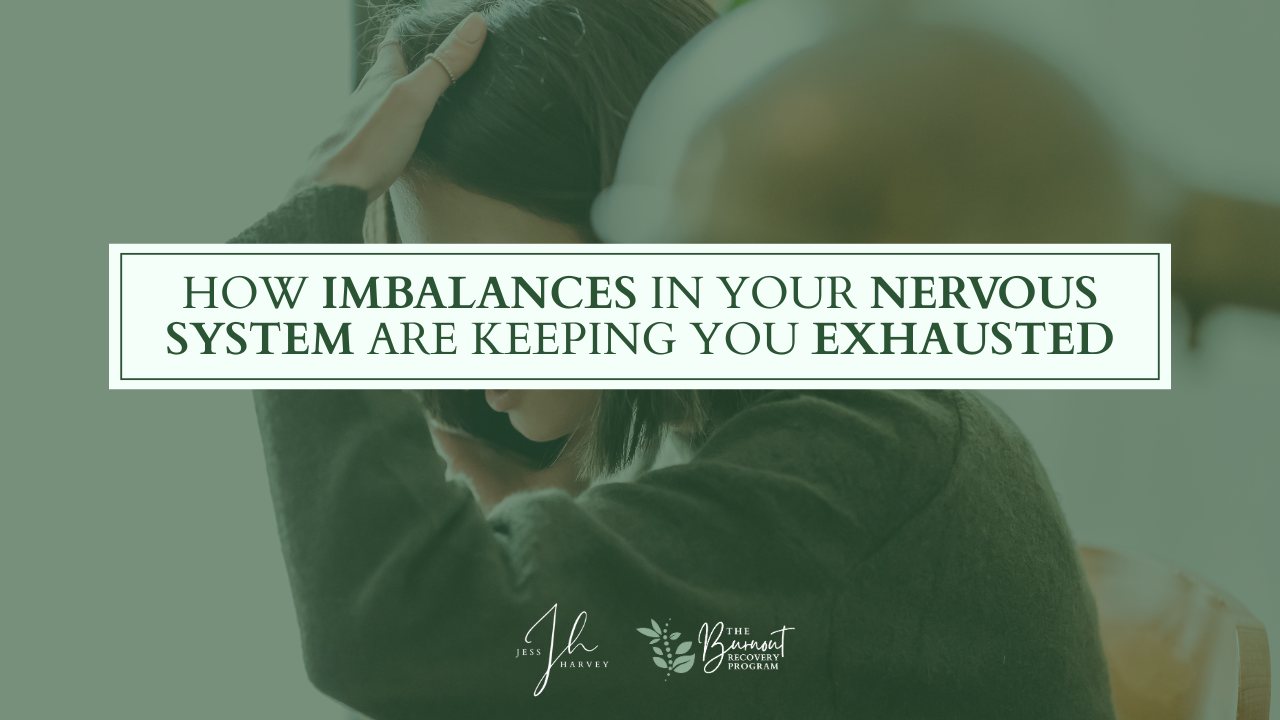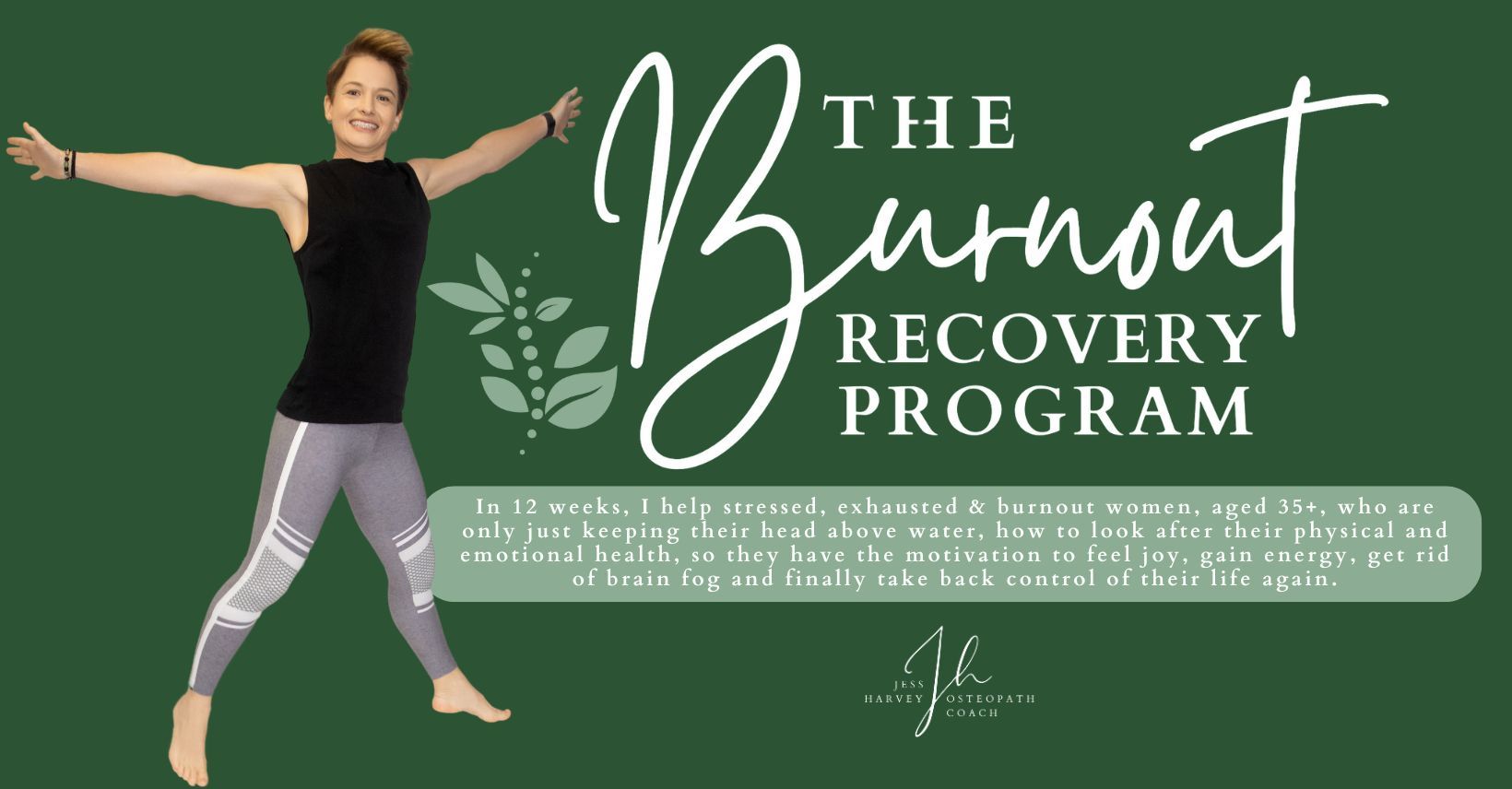
How Imbalances in Your Nervous System are Keeping You Exhausted
Want to know what is at the core of your energy, your stress levels, and even your ability to recover from day-to-day life?
That’s your nervous system – specifically, the difference between sympathetic and parasympathetic nervous systems and how they relate to fatigue, chronic pain, digestive issues and poor sleep. If you’ve been feeling constantly tired no matter how much sleep you get or how much coffee you drink, this one’s for you!
SO, let’s break this down. Your nervous system is like the control center of your body. It’s what keeps you functioning, responding, and adapting to whatever is going on in your life at the time - or, more accurately, your perception of what's going on. It has two main sides:
- Sympathetic – Fight or flight mode. This kicks in when you’re stressed, busy, or in a dangerous situation. This is where your body perceives a threat and mobilizes to take action.
- Parasympathetic – Rest, relax, digest (recover) mode. It’s the calming system that helps your body heal, recover and restore your energy.
Both of these systems are essential and have important roles in the body. However, issues can arise when we get stuck in the sympathetic mode for too long.
Let me give you a good example of how the two systems play out.
So imagine this, you're walking down the footpath and as you round the corner you are confronted by an angry dog running right at you. In that split second, if you perceive this as a threat as many people would, your sympathetic system kicks in. Your heart rate increases. Blood is redirected to your arms and legs so you can stand and fight or you can run away and your muscles tighten. This is your sympathetic nervous system activating to keep you safe.
Now, think of another scenario. You walk around that same corner on a beautiful sunny day and you find a park bench. You sit on the park bench under a tree and a lovely little puppy walks over to you and lays down by your feet for a pat. This feels good right, for most people they perceive safety in that situation and here your parasympathetic system is more dominant, so your heart rate reduces, there's a flood of happy chemicals and your muscles relax. In this state your body can repair and restore itself.
And the key is that it’s all about perception. Your nervous system will respond whether the threat is real or imagined. There doesn’t have to be an angry dog standing in front of you. This means that constantly thinking about your to-do list, catastrophizing, negative self-talk or worrying about the future can all stimulate the sympathetic nervous system even though these things haven’t happened yet and may never happen. Even breathing from high in your chest and taking small fast breaths can send signals of threat to your brain to cause a sympathetic response in your body. And this can and often does go on for days, weeks and months. We get stuck in this cycle of stress, worry and busyness.
The problem in our fast-paced world is that these stressors are constant and ongoing, and that’s where we get into trouble. Your sympathetic nervous system is like an accelerator. It’s designed for short bursts of energy – like responding to physical danger, work deadline, a workout, or even a stressful meeting (or an aggressive dog running at you). When it kicks in, cortisol, your stress hormone increases. Cortisol has got a lot of bad press lately but cortisol is not all bad, in fact, it's essential. Cortisol helps you get out of bed, get things done, it reduces inflammation and helps protect the tissues in your body. But having high cortisol for too long means our cells are swimming in cortisol all day, day after day and this is when it can have detrimental effects on the body.
There's only so long you can have your foot on the accelerator before the system will burnout. When you’re constantly 'on,' it drains your energy reserves. Over time, this leads to:
-
Ongoing fatigue
-
Poor sleep
-
Hormonal imbalances
-
Gut issues
-
Mood swings
This all sounds alot like burnout right?
On the flip side, your parasympathetic nervous system is like the brakes. It’s what allows your body to switch into recovery mode. This is when your heart rate slows, blood moves to your organs and brain, so digestion improves and your body repairs itself. But if you don’t spend enough time here, your body never gets the chance to recover. It’s like running a car on empty – eventually, you’ll become exhausted and burn out. Some signs that you might be stuck in 'fight or flight' include:
-
Wired but tired (can’t switch off even when exhausted)
-
Waking up tired
-
Craving sugar or caffeine
-
Digestive issues (bloating, constipation)
-
Low libido or reproductive issues
-
Feeling overwhelmed or anxious
The good news is, you can shift your body into 'rest and digest' mode with simple, consistent habits. Here are a few tips:
Slow Belly Breathing – Place one hand on your belly and take slow, deep breaths through your nose, lengthening your out breath.
Prioritize Quality Sleep – Aim for consistent bedtimes and create a calming wind-down routine.
Mindful Movement – Gentle yoga, walking in nature, or stretching can help calm your nervous system.
Nourish Your Body – Eat balanced meals that stabilize your blood sugar, like protein, healthy fats, and fiber.
Unplug – Take breaks from screens and social media and give your mind time to rest.
So, to summarise, back in the day, this fight flight system was effective for responding to a physical threat in our environment. To give you what you needed to deal with the threat. Then, when the threat had passed, the parasympathetic took over and the body was in a state to heal the damage that occurred as a result of the danger. In our modern day culture, the stress and perceived threat is constant and this is where our physical, mental and emotional health is suffering.
Your nervous system is such a powerful tool for managing your energy and overcoming fatigue. By understanding the balance between your sympathetic and parasympathetic systems and how to work with it, you can start making small changes that lead to big results.

